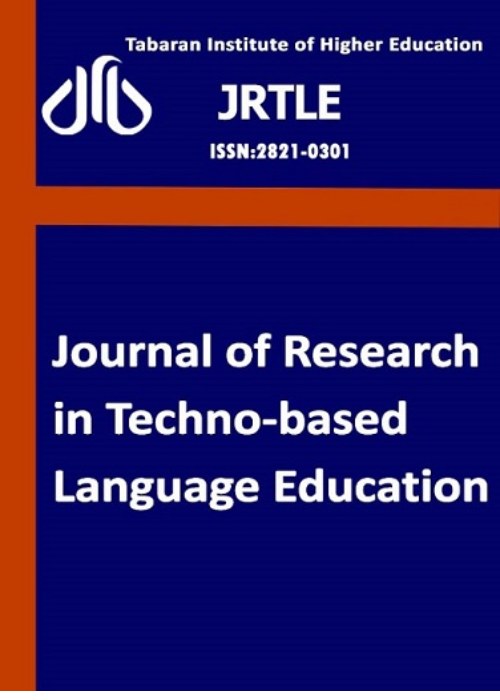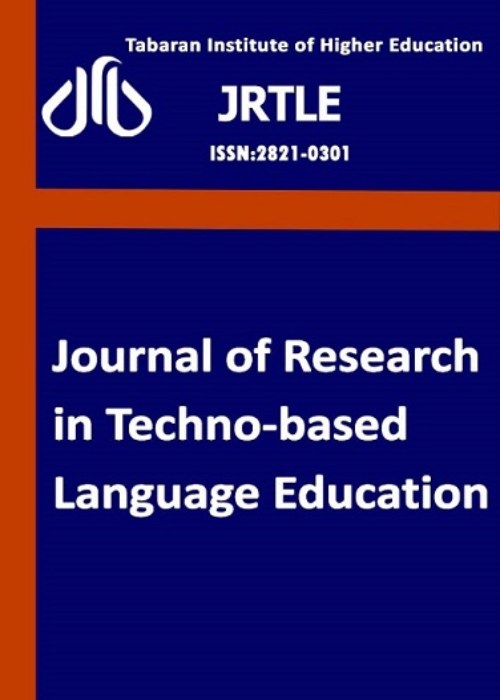فهرست مطالب

Journal of Research in Techno-based Language Education
Volume:2 Issue: 3, Sep 2022
- تاریخ انتشار: 1401/09/10
- تعداد عناوین: 2
-
Pages 1-15
The role of games in improving EFL students’ motivation to participate in interactive practices has been highly emphasized in past research. Although Iranian students are reluctant to interact in online language classes, the current study explored the impact of using game-based tasks on Iranian students' virtual interaction in EFL classes. The subjects included 35 female students in the seventh grade of a junior high school in Tabriz, Iran were selected by convenience sampling method. Classroom Action Research was conducted in four stages: planning, acting, observing, and reflecting. Innovative game-based activities, such as Roleplay, This or That, Café Owner, and Let's Make Salad were used to improve students’ interaction. Interviews, tests, and class observations were used to collect and triangulate the data. In this study, descriptive statistics were used to analyze the obtained data. The findings revealed that the use of games could improve students’ interaction in online language classes. The results can yield useful implications for language teachers and materials developers in increasing EFL students' virtual interaction through different game-based techniques.
Keywords: Action Research, EFL students, Game-Based Tasks, Online Classes, Virtual Interaction -
Pages 16-30
Technological advancements such as computer-assisted language learning and mobile-assisted language learning have changed the scope and design of dictionaries. One advancement has been the emergence of online dictionaries, facilitating and expediting word queries and enhancing dictionary consultation with the addition of built-in features. One such online dictionary is Tureng, a commonly favored multilingual dictionary through its web-based and mobile applications. To this end, this review evaluated this online dictionary in accordance with the adapted and modified framework of Kohnke and Moorhouse (2022). The review found that Tureng has an easy-to-navigate interface and high-quality audiovisual content. It was also discovered that Tureng offers ample opportunities for learning vocabulary through its features such as word of the day, the idiom of the week, videos by Tureng, and newly-coined word of the week. It was further revealed that Tureng offers contextualized and audio-visually supported pronunciation learning through its YouGlish supplement. Moreover, practice and self-assessment of grammar, listening, pronunciation, and vocabulary through the test your English component is available on the web-based application. Nonetheless, the dictionary possesses specific technological and pedagogical limitations. More research, especially of an experimental nature, is needed to verify the analysis findings.
Keywords: Language Learning, Online Dictionary, Technology, Tureng, Vocabulary


